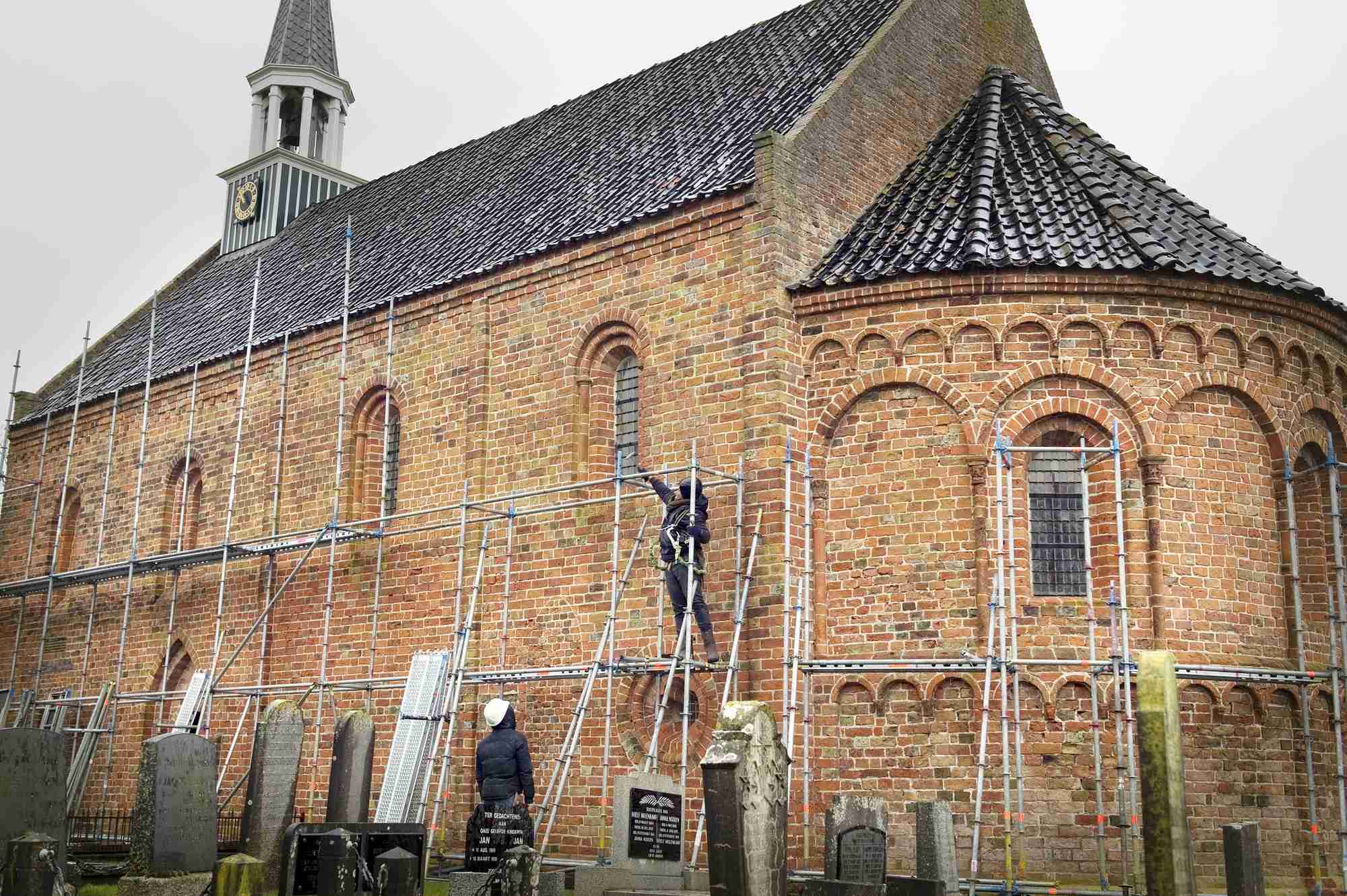New Gronings Perspectief study: increased stress due to damage and reinforcement in gas extraction area

Following improvements in 2020, the health of Groningen residents whose properties have sustained damage as a result of gas extraction clearly deteriorated in 2021. In addition, trust in the Dutch government decreased. The health and perceived safety of residents has been found to deteriorate during part of the housing reinforcement operation that is intended to restore the safety of homes. The researchers, Prof. Katherine Stroebe and Prof. Michel Dückers of the University of Groningen, conclude that the indirect consequences of gas extraction, such as the procedures for and solutions to problems, appear to be just as stressful as the earthquakes and the damage that they cause.
How are the perceived safety, trust, and health of the residents of Groningen’s earthquake area developing? What impact is housing reinforcement having? And are the indirect consequences (solutions and procedures surrounding damage and reinforcement) just as bad as the original ‘ailment’ (earthquakes and damage to houses)? These were the central questions in the two 2021 panel measurements as part of the long-term research project Gronings Perspectief.
Decreased health and trust of residents with damage
Both April and October 2021 saw significant decreases in health among residents who were dealing with one or multiple cases of damage compared to previous years. People with multiple damage in particular suffered from poorer health. Trust in the Dutch government also decreased. Stroebe: ‘In 2020 we saw an improvement in health, even in people facing multiple instances of damage, but the tide is now turning. We do not know exactly why. I think that the current problems do not inspire optimism: there is a slow-moving reinforcement operation, the threat of increasing gas extraction, a lot of new rules and procedures – many residents lack the prospect that things will get better soon.’
Reinforcement as a stress factor
Residents whose houses are being reinforced are more at risk: they have poorer health than those who do not have to deal with reinforcement. Additional analyses show that it matters which phase of reinforcement residents are in: their health deteriorates and they feel less safe during the phase between assessment and planning. Some recovery occurs when construction is complete, but it is unclear whether this continues. Stroebe: ‘The analysis shows no improvements in health and safety as a result of the reinforcements. In fact, the opposite seems to be the case, although additional analyses are still needed. The current analyses show that attention must at least be paid to residents in the phase between assessment and planning. They are not doing well.’
Indirect consequences of gas extraction
The current research clearly confirms that the hassle that people experience with authorities and procedures as a result of gas extraction negatively affects their health, perceived safety, and trust. Reinforcement was supposed to solve the problem but has turned out to be a stress factor. In addition, residents themselves indicate that indirect consequences in particular (slow and unfair procedures and long-term uncertainty) make them vulnerable to the problems surrounding gas extraction. Stroebe: ‘Our previous research showed that hassle with authorities and procedures is very stressful, and our current report further supports this. You could well say that the solutions offered are perhaps almost as bad as the original ailment; earthquakes and damage.’
About Gronings Perspectief
Gronings Perspectief is a collaboration between the University of Groningen and the Groningen Social Planning Office, led by Prof. Stroebe and Prof. Dückers. The research team is assisted by a supervisory committee comprising several municipalities, the Municipal Health Service, special interest group Groninger Bodem Beweging, cross-sectoral collective of social organizations Groninger Gasberaad, the Ministry of the Interior and Kingdom Relations, the National Coordinator for Groningen, the Province of Groningen, the Veiligheidsregio (Safety Region) Groningen, and the Association of Groningen Villages, as well as scientific experts.
The Gronings Perspectief team has been studying the health, perceived safety, and future prospects of residents of all municipalities in the gas extraction area since 2016. Since 2021 it has received funding for this research from the Ministry of the Interior and Kingdom Relations; previous funds came from the National Coordinator for Groningen. A panel of Groningen residents periodically completes a questionnaire on safety, health, and future prospects. All of the findings of Gronings Perspectief are published on the website groningsperspectief.nl.
| Last modified: | 26 January 2022 1.31 p.m. |
More news
-
24 March 2025
UG 28th in World's Most International Universities 2025 rankings
The University of Groningen has been ranked 28th in the World's Most International Universities 2025 by Times Higher Education. With this, the UG leaves behind institutions such as MIT and Harvard. The 28th place marks an increase of five places: in...
-
05 March 2025
Women in Science
The UG celebrates International Women’s Day with a special photo series: Women in Science.
-
16 December 2024
Jouke de Vries: ‘The University will have to be flexible’
2024 was a festive year for the University of Groningen. In this podcast, Jouke de Vries, the chair of the Executive Board, looks back.
